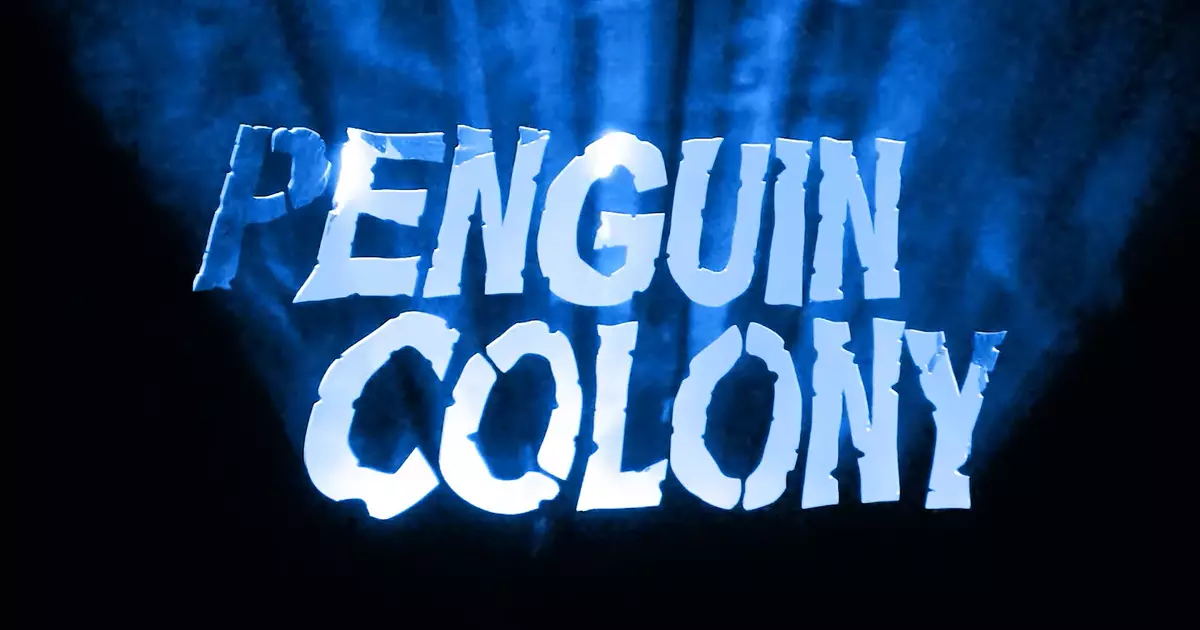In an era where video games continually push the boundaries of narrative and aesthetic experimentation, a new title dares to blend the icy isolation of Antarctica with the eldritch terrors of Lovecraftian mythos. This game, tentatively titled *Penguin Colony*, promises an immersive, bizarre, and deeply subversive experience that challenges traditional notions of gameplay and storytelling. Its creator, the team responsible for the acclaimed *Umurangi Generation*, is no stranger to pushing social and political boundaries through art, and their latest project appears poised to do the same in the realm of cosmic horror and environmental satire.
What makes *Penguin Colony* stand out is not merely its premise—a fractured retelling of *Mountains of Madness* with a choice of playable penguins—but its audacious film-inspired aesthetic. By enlisting Lenval Brown, renowned for his mesmerizing voice acting in *Disco Elysium*, the developers signal their intention to craft an atmospheric, narrative-driven adventure that delves into the unsettling. The trailer’s visual homage to John Carpenter’s *The Thing* emphasizes the intersecting themes of paranoia, infection, and alien intrusion, suggesting a game that will immerse players in a tense, unsettling environment where trust is scarce.
This combination of cosmic dread and Antarctic setting raises provocative questions. How will the game explore the themes of colonization, otherness, and ecological decay—topics that the creators have engaged with compassionately in past projects? Considering the political roots of *Umurangi Generation*, it’s likely that *Penguin Colony* will incorporate nuanced critiques of colonialism, potentially amplifying Lovecraft’s notoriously problematic view of “foreign” lands and peoples through a more inclusive, self-aware lens. The presence of Māori language in the trailer hints at a deliberate cultural conversation, possibly positioning the game as a form of resistance against old imperialist narratives.
Eclectic Design Meets Cosmic Chaos
One of the most intriguing elements is the gameplay mechanic—players can unlock different penguins, each endowed with unique abilities and vulnerabilities. Imagine slipping through icy crevasses as a baby penguin or navigating treacherous underwater passages where only the most adaptable survive. This dynamic character selection not only diversifies gameplay but invites reflection on ecological diversity and resilience amid chaos. The notion that certain penguins cannot swim invites a subtle commentary on vulnerability and survival in hostile environments—parallels that resonate with the existential dread of cosmic horror.
Furthermore, the game’s whimsical, yet profound touch extends to its cultural references and humor. The mention of *Faaast Penguin*, a multiplayer penguin race game, hints at a playful yet melancholic acknowledgment of humanity’s obsession with speed, competitiveness, and trivialities amid impending doom. Even the joke about a “penguin diagram” referencing quantum quarks underscores the absurdity of seeking scientific or linguistic control in a universe that defies comprehension—a universe collapsing under its own contradictions and cosmic indifference.
Artistic Subversion and Cultural Engagement
What elevates *Penguin Colony* beyond a mere parody or horror homage is its potential for cultural critique. The developers’ previous work dealt explicitly with issues like decolonization, making it plausible that their Lovecraft-inspired universe will critique both the genre’s historical baggage and ecological exploitation. By infusing the narrative with indigenous languages and perspectives, the game might serve as a form of cultural reclamation—an assertion that even in the face of incomprehensible alien forces, diverse voices and stories survive.
The trailer’s announcement, narrated with compelling gravitas, foreshadows a game that is as much about the collapse of understanding as it is about the survival of a species. The choice of penguins, seemingly adorable and innocuous, as protagonists confronting existential threats, serves as a stark reminder that even the most familiar or charming aspects of nature are vulnerable to cosmic forces beyond human comprehension.
In the end, *Penguin Colony* is not merely a game; it’s a provocative artistic statement. By combining surreal visuals, cultural critique, and innovative gameplay, it challenges players to confront the unsettling reality that beneath the veneer of innocence lies an incomprehensible universe—a universe slowly unraveling at the seams, with a gaggle of determined penguins caught in the cosmic crossfire. Whether this experiment becomes a masterpiece or a curious footnote depends on how bravely it navigates its own ambitious themes, but one thing is certain: it has already succeeded in capturing the imagination by daring to ask the most profound questions amid the icy wasteland.

